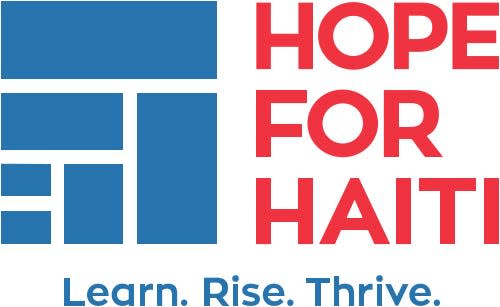Guest opinion: Hope again hope for Haiti

Two centuries ago, Haiti emerged as a beacon for the Western Hemisphere. Overthrow of the French, achieved in 1804, established Haiti as the only country ever to have staged a successful slave uprising – thereby becoming the first independent Caribbean nation and first black-led Republic.
Independence, secured after 13 years of brutal war against Napoleon’s army, had a steep price. War had destroyed infrastructure and the economy and unnerved nearby slave nations. Haiti had no diplomatic or trade relations, and the country lacked domestic and foreign investment. Two decades later, Haiti was coerced into paying massive reparations (the modern equivalent of $21B) to French slave owners – an “independence debt” not paid off until 1947.
By the end of the 19th Century, Haiti was allocating 80% of its budget to loan repayment. Fear that Haiti would default on its debts to the United States led to a two decade long military occupation. The Great Depression devastated an emerging export industry. And as happens when government lacks accountability, corruption became embedded in the political culture. International aid and government contracts accrued primarily to the country’s leaders. Instability triggered American intervention in the 1990s and a 14-year UN Stabilization Mission (“occupation”) that arguably made bad situations worse and left the country at the mercy of an international community suffering from “Haiti fatigue.”
As the historian Alex von Tunzelmann put it, “Haiti has had slavery, revolution, debt, deforestation, corruption, exploitation and violence. Now it has poverty, illiteracy, overcrowding, no infrastructure, environmental disaster and large areas without the rule of law.” And that was before the 2010 earthquake, which left survivors in conditions that would be considered unlivable except for the fact they are being lived in.
With the recent assassination of President Jovenel Moise, government unraveled. Criminal gangs, funded by kidnapping of Haitians and foreigners, now run much of the country. An underfunded and poorly equipped Haitian police force cannot match the gangs’ arms-trafficked weaponry. Ordinary Haitians live in terror, and neighboring countries worry that the malignancy may spread. Amidst the anarchy, power struggles paralyze the political system.
There are four steps that can pull back Haiti from the abyss. They include:
Establishing a transitional government of national consensus;
Combating the gangs to create a secure environment.
Implementing a massive economic assistance program that truly holds recipients accountable; and
Introducing enforcement mechanisms that minimize corruption.
It is fair to say that these actions are so obvious that, if they could have been taken, would have been taken already. Why is now any different? The reason is the unprecedented and organized engagement of the Haitian diaspora -- 2M+ persons of Haitian descent tied to a country of 11M persons. The diaspora has no credibility issues, because it has no agenda other than seeing a viable Haiti.
Toward this end, Haitian Diaspora-PAC (HD-PAC) and associated groups have secured the agreement of rival parties to meet this month to identify Haitian solutions to Haiti’s problems. This Haiti Unity Summit, at an American HBCU, will be facilitated by Lt. Gen. Russel Honoré (ret.), well known for his relief efforts in distressed environments. It will be attended by the U.S. Ambassador to the United Nations.
History teaches that solutions to Haiti’s problems cannot be imposed by foreign powers. American intervention has not and cannot work, nor should it be tried. Insofar as American policy has contributed to Haiti’s legacy of woes, however, there lies an obligation. It is one that requires the United States to recede into the background, support the work of the diaspora, and publicly back any consensual solutions that emerge from the Summit. It would be a worthy outcome as we celebrate Haiti’s 218th year of independence.
Donald Lively is a former law school dean, and author and resident of Naples. He is on the Board of Directors of HD-PAC.
Fritz M. Clairvil, MBA, MPA, is a Haitian-American Entrepreneur and Chairman of the HD-PAC International Affairs Committee.
This article originally appeared on Naples Daily News: There are four steps to bring Haiti back from the abyss
